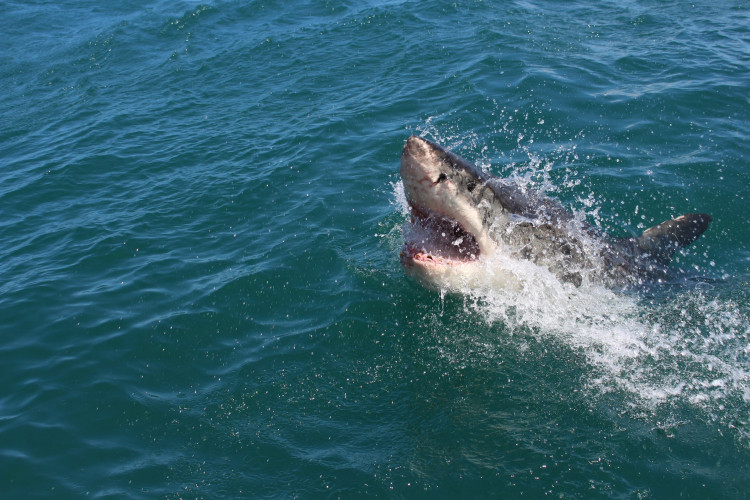New research suggests young white sharks, which are responsible for the bulk of human attacks, are unable to distinguish between humans and seals.
According to an Australian study, the apex predator may not be able to tell the difference between surfers and swimmers at the water's surface and their natural food.
"They're not these mindless killers, but we just happen to look like their food," the study's lead author, Laura Ryan of Macquarie University, said.
The researchers compared video footage of swimmers, persons paddling surfboards, and seals as seen by a great white shark from underneath in the ocean.
Detailed in a new paper published Tuesday in the Royal Society Journals, sharks were unable to discern between the motion signals or features of the prey and humans, indicating that humans and seals appear "dangerously similar" from a shark's perspective.
The researchers also discovered that to juvenile sharks, swimmers and paddle surfers resembled seals with their flippers abducted.
The data backed with the theory that great white sharks do not actively seek humans as prey.
Ryan stressed that the study focused on "unprovoked" shark attacks, such as those on swimmers and surfers, whereas a provoked shark attack might be a defensive or hostile response to a direct human disturbance, such as a diver touching a shark or someone spear fishing.
According to the study, white sharks, bull sharks, and tiger sharks are the shark species that cause the most injuries and death bites.
Surfers, based on previous research, are at the highest risk of deadly shark bites, especially from juvenile great white sharks.
Ryan believes that a deeper knowledge of why sharks bite humans will aid in the development of ways to counter them.
The paper noted that more research was needed into other species involved in shark bites, such as bull shark and tiger sharks, saying they are "not sure if mistaken identity applies to them."
Seals aren't popular prey for such animals, but they do eat turtles and other floating objects.
While shark bites are uncommon, they can have "devastating" consequences for victims and first responders, as well as affect local businesses if tourism falls, the study noted. Bites have a negative impact on shark populations because they frequently lead to the deployment of lethal shark mitigating measures.






